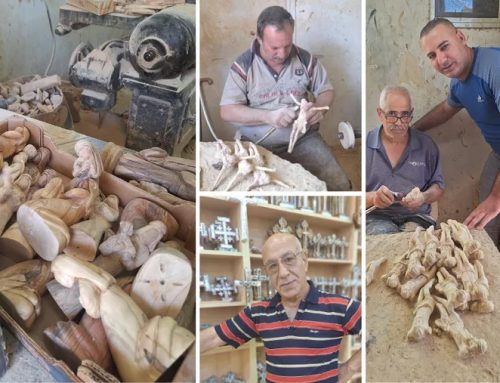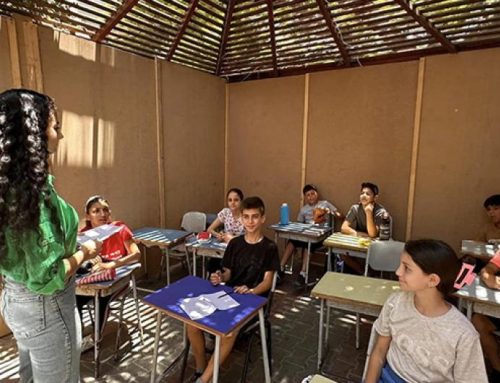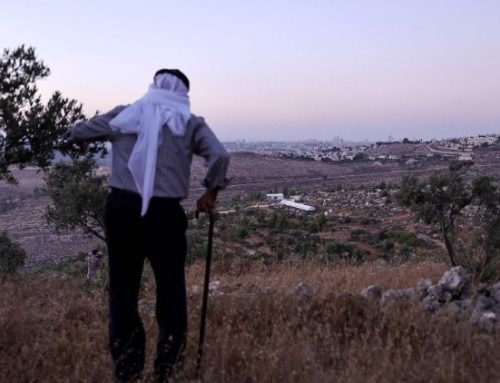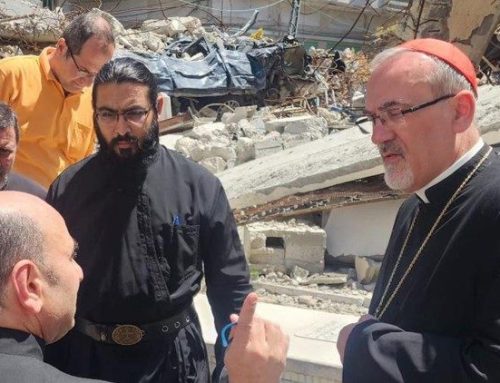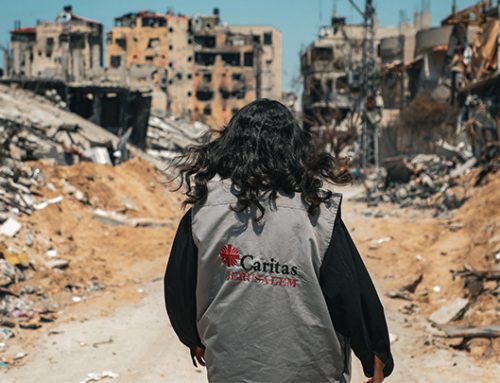Expressing “alarm and concern” the World Council of Churches (WCC) has presented a formal protest to the Israeli ambassador in Switzerland over two recent incidents involving violence by Israeli settlers against Christian volunteers
Expressing “alarm and concern” the World Council of Churches (WCC) has presented a formal protest to the Israeli ambassador in Switzerland over two recent incidents involving violence by Israeli settlers against Christian volunteers participating in the Ecumenical Accompaniment Programme in Palestine and Israel (EAPPI).
In a letter sent on 25 April, 2006 to Israeli ambassador Mr Aviv Shir-On, the director of the WCC Commission of the Churches on International Affairs, Peter Weiderud, requested appropriate actions by the Israeli authorities and law enforcement agencies to stop “abusive, unlawful and violent behaviour by settlers toward Palestinians and internationals”.
On 1 April, Silvana Hogg, a Swiss lawyer, was stoned by a young Israeli settler in the Tel Rumeida district of Hebron, and needed seven stitches for a head wound as a result. On 20 April in the same neighbourhood, Karin Laier, a German social worker and Tore Ottesen, a Norwegian sociologist, were attacked by some 15 young settlers. Laier and Ottesen sustained bruises but were not seriously injured.
In both cases, the Christian volunteers were on duty escorting Palestinian pupils of the Cordoba Girls School to protect them from harassment by settlers. They are members of a team of four ecumenical accompaniers who have been placed in Hebron since February. The Cordoba Girls School is situated opposite the Beit Hadassah settlement. Its pupils and teachers are frequent targets of stone-throwing, kicking and spitting by the settlers.
The violent incidents, although “serious in and of themselves” are just “a small fraction of the settler and other occupation-related attacks against Palestinians in Hebron, in the West Bank and in East Jerusalem”, says Weiderud in his letter to the Israeli ambassador in Switzerland.
Stressing that the root of the problem is “the practice of establishing, protecting and expanding settlements”, Weiderud also requests “concrete steps that lead to the complete withdrawal of all settlers from Hebron and return of settler-occupied properties to their Palestinian owners”.
Reaffirming its longstanding commitment to a peaceful resolution of the conflict, Weiderud recalls in his letter that the WCC “strongly condemns all forms of violence and attacks perpetrated by the State of Israel inside the Occupied Palestinian Territories and by Palestinian armed groups inside the State of Israel”.
Coordinated by the WCC, the Ecumenical Accompaniment Programme in Palestine and Israel began in 2002 and has received 270 accompaniers from 14 countries. Its purpose is to support Palestinians and Israelis working for peace by monitoring and reporting violations of human rights and international humanitarian law, offering protection by accompanying local communities in daily activities, and standing in solidarity with the churches and advocating with them for a peaceful end to the occupation.

